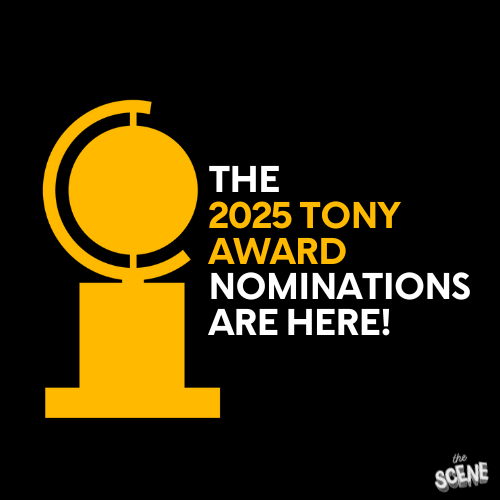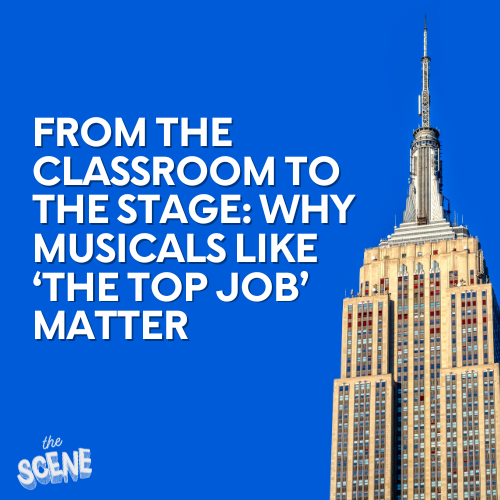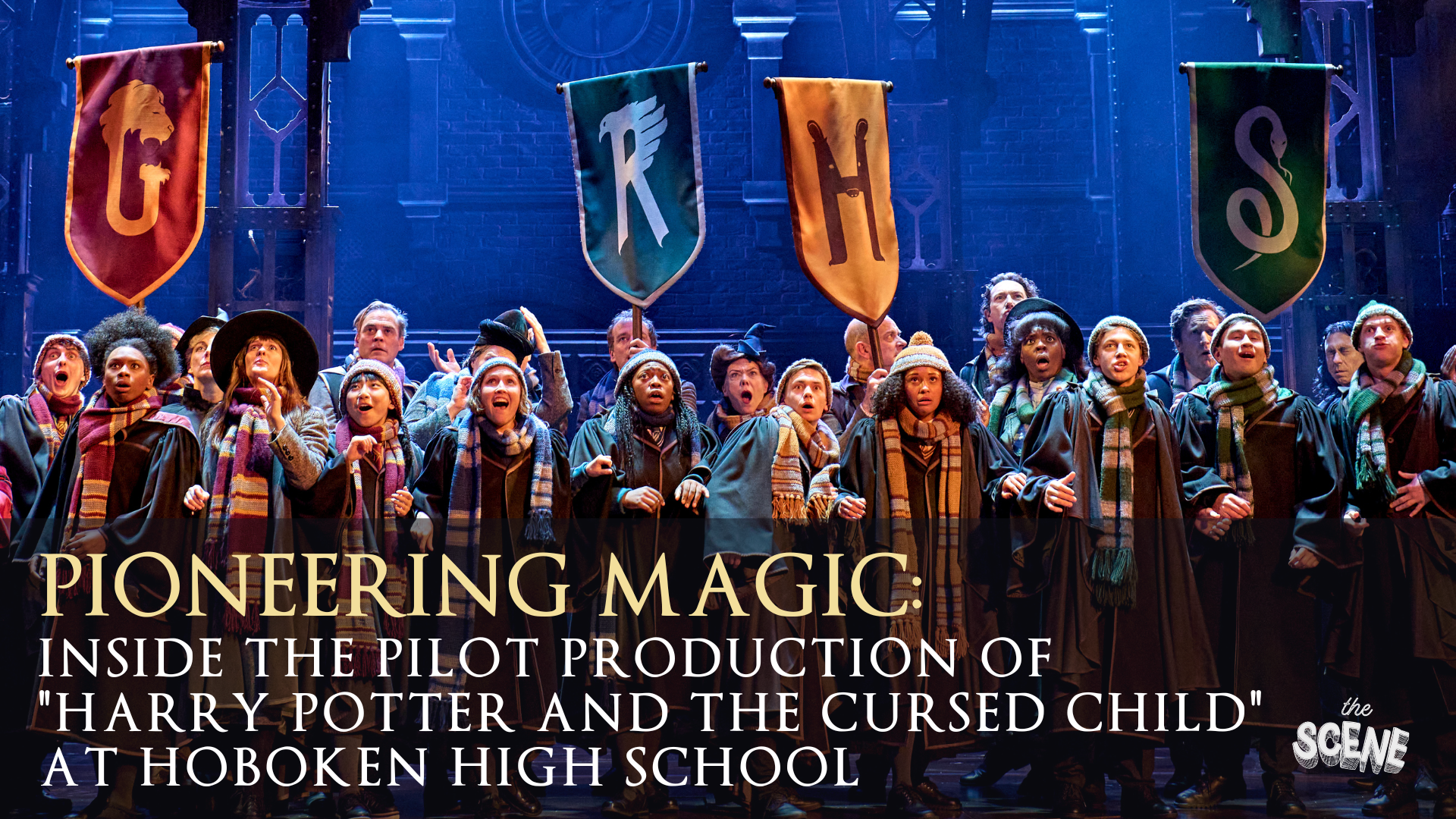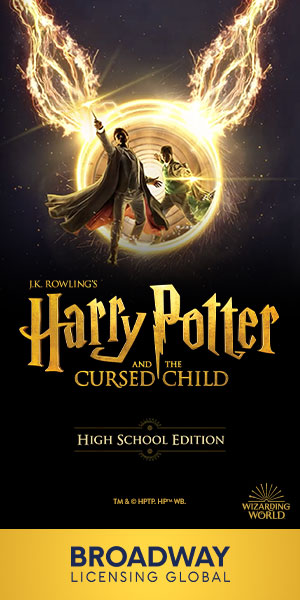By Zach Dulli, The Scene
In the vibrant world of high school theater, staging a production as iconic as ‘Harry Potter and the Cursed Child’ is both a daunting and exhilarating challenge. The Scene had the opportunity to delve into this ambitious endeavor with Danielle Miller, Supervisor of Performing Arts for Hoboken Public Schools, and Derek Kinnear, High School Theatre Educator and Director at Hoboken High School, who are leading the pilot production of the high school adaptation of this beloved play. Their insights reveal not only the meticulous planning and creative innovation required but also the profound impact such theatrical ventures have on students and their communities.
Vision and Execution
Our conversation begins with Danielle Miller acknowledging the pressure of being the premiere high school production in North America. “We feel there is a little added pressure compared to other productions just because we are the first,” she shares. The desire to deliver a high-quality performance while showcasing the creative potential of public school theater programs was paramount.

One significant challenge was to remain original in the visualization of the play. “Our challenge was to innovate within the constraints of a well-known universe. We had to reimagine sets, costumes, props, and even the choreography of movements in a way that was fresh yet familiar,” Danielle explains. This endeavor was about bringing a personal touch to a universally cherished narrative especially given the pre-existing expectations of the audience familiar with the Harry Potter universe. Creating an original vision while respecting the established world of Harry Potter requires a delicate balance. The team was keenly aware of their responsibility not only to meet the standards associated with the franchise but also to showcase the potential of public school theater programs. This pilot was designed to establish a high benchmark and provide insights for future productions in similar settings.
On the technical front, Derek Kinnear elaborates on the adaptations needed to bring the magical aspects of the story to life within the limitations of a high school theater’s resources. “We knew we didn’t want to try to copy the effects done on Broadway,” he explains. The team focused on creating unique magical moments that were feasible within their budget, adding “little but precise effects” to captivate the audience without overwhelming the production team or exceeding their financial limits. “Our goal was to create a sense of wonder that was uniquely ours, without trying to replicate the high-budget effects of Broadway,” he explains. The team fostered creativity among the students, allowing them to propose ideas that were both feasible and effective in conveying magic on stage. This approach resulted in a production that featured distinctive magical moments conceived and executed by the students themselves.
Kinnear emphasizes the importance of originality, urging educators to avoid merely mimicking professional productions. “The specific effects and magical moments aren’t even mentioned in the adapted script,” he notes, allowing for creative freedom in how these elements are incorporated based on the scenes and characters.
Inclusive and Fair Casting Practices
Casting for a play with such iconic characters presents its own set of challenges, particularly in a school environment. Danielle Miller describes their inclusive and equitable approach: “The iconic characters did not influence our casting decisions,” she states. With over 300 students auditioning, the casting process was meticulous, ensuring a diverse and balanced ensemble that reflected the school’s commitment to equity and inclusion.
Miller’s strategy involves looking beyond talent and focusing on giving as many students as possible the chance to shine. “We ensure that we have an equal number of students per school in our district,” she adds, highlighting the importance of rotational casting to foster a broad range of experiences among the students. This method not only promoted fairness but also allowed new talents to emerge and take the spotlight, ensuring that the casting decisions were as diverse as the community itself.
Fostering Community Involvement
Engagement with the community has been pivotal. Miller shares details of their strategies to drum up excitement and support for their production. “We had a huge District Show Reveal Party… it was almost like a sports pep rally,” she recounts. Such events not only build anticipation but also strengthen the bond between the school and the wider community, which is crucial for the sustained success of their theatre program.
In addition to these large events, the school has organized specific activities like a special dress rehearsal for other theatre school districts in New Jersey, providing a platform for sharing experiences and fostering a sense of community among theatre educators and students alike.
Check out the video of the Show Reveal Party at Hoboken High School below.
Practical Advice for Future Productions
Both directors stress the importance of originality in staging ‘Harry Potter and the Cursed Child’ at other schools. “Imitation might be flattering, but in theater, originality wins,” Derek advises. He encourages educators to let their schools’ unique context and students’ creative impulses guide the production process. This approach not only enhances the educational experience but also ensures that each production is special.
Derek also underscores the necessity of meticulous planning and collaboration across all departments involved in the production. “This play requires a symphony of efforts—technical, artistic, and logistical,” he explains. Early and inclusive planning ensures that every aspect of the production is harmonious and effective, from the initial concept to the final curtain call.

Looking Towards the Future
Looking ahead, Miller hopes the production will inspire other schools to embrace similar ambitious projects and recognize the profound impact theatre can have on students. Danielle also hopes that this production will inspire other school districts to recognize and invest in the arts. “Theater is a powerful medium for developing key life skills such as confidence, cooperation, and communication,” she asserts. These skills are crucial not only in personal development but also in professional contexts, underscoring the value of theater education in shaping well-rounded individuals. The pilot high school production of ‘Harry Potter and the Cursed Child’ is a testament to the transformative power of school theater. It showcases how a beloved literary and theatrical work can be effectively adapted to a different context while still delivering its core message.
Danielle Miller and Derek Kinnear’s experiences and strategies provide a valuable blueprint for other educators looking to undertake similar projects. Their pioneering work not only sets the stage for future productions but also demonstrates how high school theater can be a profound and transformative experience. Furthermore, it demonstrates that with creativity, collaboration, and commitment, educators and students can produce something truly magical. As more schools consider taking on this production, the insights from Hoboken’s experience will undoubtedly serve as a valuable guide in making theatrical magic accessible and impactful for students across the country.
___
‘Harry Potter and the Cursed Child’ School Edition Is Now Available for Licensing. For more information, visit licensedcursedchild.com.









